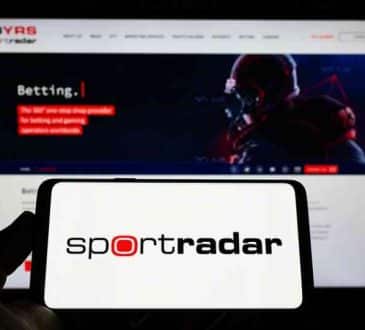Character – The Aerodynamics of Leadership

The history of flight over thousands of years is replete with disastrous stories of people trying to fly by emulating birds. Even the term aviation stems from the Latin words for bird “avis” and “ation,” meaning action. It was not until 1846 that Sir George Cayley began to articulate the physics of flight, conducting scientific experiments to understand the hidden aerodynamics, that the mysteries of flight opened the door for new approaches. Leadership is akin to flying. A key component, hidden in plain sight, has been the equivalent of the aerodynamics of leadership – character.
The study of character is as ancient as the history of flight, spanning thousands of years, with ancient philosophers such as Confucius, Aristotle, and Plato, and tracked through the oral stories and traditions of indigenous elders passed down through generations, such as the Seven Grandfather Teachings. Yet, we have failed to transport those learnings into higher education and organization, which became abundantly clear in the 2008 financial crisis.
Revealing the Science of Character
The disasters of leadership have been prominent, whether it be Enron, Wells Fargo, Volkswagen or Boeing. Witnessing the global impact of the 2008-2009 financial crisis prompted us to put Leadership on Trial to examine what we had been missing. In doing the research, discussions with executives around the world revealed that the issues they saw were not failures of competence, but rather failures of character. However, because the science of character had eluded us, there was no agreement on what defined character, whether it could be developed, and how it could be embedded in organizations. Our journey since that time is akin to Cayley’s articulation of the physics of flight, as we have sought to understand the anatomy of character.
Building on the shoulders of ancient philosophers and modern-day academic research, coupled with an engaged scholarship approach with thousands of executives, we were able to identify a robust leader character framework comprised of 11 interconnected dimensions of character and a set of behaviors that can be observed, assessed and developed. Whereas the study of leadership has been locked in understanding personality, competencies and style, the science of character brings a fundamentally different perspective. With a defined set of behaviors associated with character that establish the behaviors as virtuous, the study of character is not simply about understanding individual differences (personality), the skill or capability they bring to a task (competencies), or the way in which they display their leadership (style). Instead, character is about the foundational elements that influence both judgment and well-being.
A key warning that harkens back to Aristotle is that any potential virtue in deficiency or excess operates like a vice. Said differently, a high level of courage needs temperance to ensure it does not manifest as recklessness. Herein lies a key missing piece of the aerodynamics of leadership. Our misguided notions of what makes great leadership have led to over-weighting some dimensions of character and under-weighting others. The problem is insidious and compounded by our obsession with competence and neglect of character.
A Way Forward
Despite past disregard for character, there is a very promising way forward. Just as the science of flight prompted new approaches, the science of leadership needs to elevate character alongside competence. This means that wherever competence resides, character also merits attention, in such obvious places of leadership development, hiring, performance management, and promotion, and the not so obvious places of understanding how the strength of character underpins all leverage points of the organization, including risk management, culture, strategy and innovation.
While this may sound like a daunting task, it is inherently doable, as we describe in The Character Compass. From wherever you sit, whether you are a senior leader, an aspiring leader, or someone with oversight over leadership, such as a director, regulator or educator, you can embrace what it takes to move forward, starting with yourself.
Educate yourself on the aerodynamics of leadership by exploring what character is and how to develop it. There are a lot of tools in the tool kit on development, but we emphasize that just as you can’t get fit by reading about fitness, the development of character requires a willingness to do the work. Character is a habit of behavior, and without conscious attention to what it is and how to develop it, we are all prone to the perils of believing our strengths are our virtues when they may be operating as vices.
Taking Flight
Cayley was not able to change aviation on his own, and likewise, the journey to elevate character together with competence in higher education and organizations requires a cascading influence from wherever we sit and whomever we influence. Just as aerodynamics was invisible to the eye, we have until now had a devastating blind spot when it comes to character. Simply having clarity around the science of character helps us see what we have been missing, and once seen it cannot be unseen.
Although the journey to transform organizations will take time, the good news is that there are immediate benefits we can experience in both our own well-being and the difference we seek to make in the world. As we bestow these benefits on others and our organizations, we can mitigate the toxic consequences of inadequate leadership, while realizing the enormous paybacks that accrue from recognizing how strength of character alongside competence allows leadership to take flight.
Written by Dr. Mary Crossan and Bill Furlong.
Have you read?
Highest-paid CEOs among Russell 3000 companies, 2023.
These Are the highest-paid CEOs among S&P 500 companies, 2023.
Ranked: The 50 Richest Celebrity Couples in the World, 2023.
The world’s wealthiest 300 cities, 2023.
Global Happiness Index: Happiest Countries In The World In 2023.
Add CEOWORLD magazine to your Google News feed.
Follow CEOWORLD magazine headlines on: Google News, LinkedIn, Twitter, and Facebook.
This report/news/ranking/statistics has been prepared only for general guidance on matters of interest and does not constitute professional advice. You should not act upon the information contained in this publication without obtaining specific professional advice. No representation or warranty (express or implied) is given as to the accuracy or completeness of the information contained in this publication, and, to the extent permitted by law, CEOWORLD magazine does not accept or assume any liability, responsibility or duty of care for any consequences of you or anyone else acting, or refraining to act, in reliance on the information contained in this publication or for any decision based on it.
Copyright 2024 The CEOWORLD magazine. All rights reserved. This material (and any extract from it) must not be copied, redistributed or placed on any website, without CEOWORLD magazine' prior written consent. For media queries, please contact: info@ceoworld.biz
SUBSCRIBE NEWSLETTER








